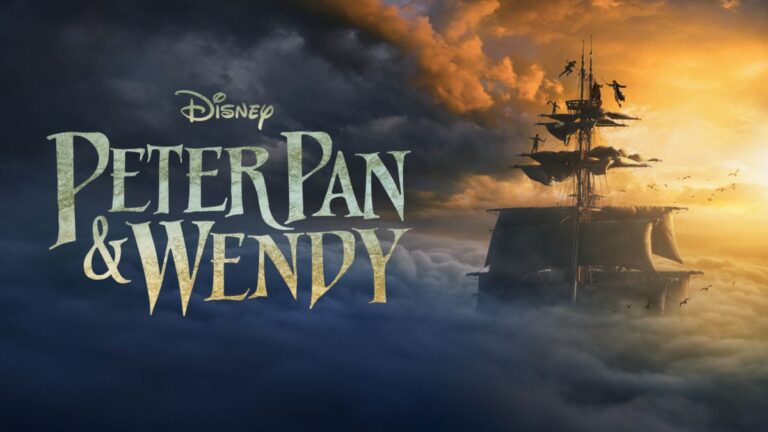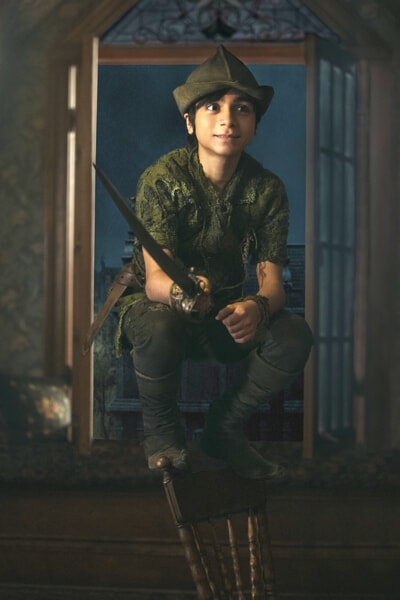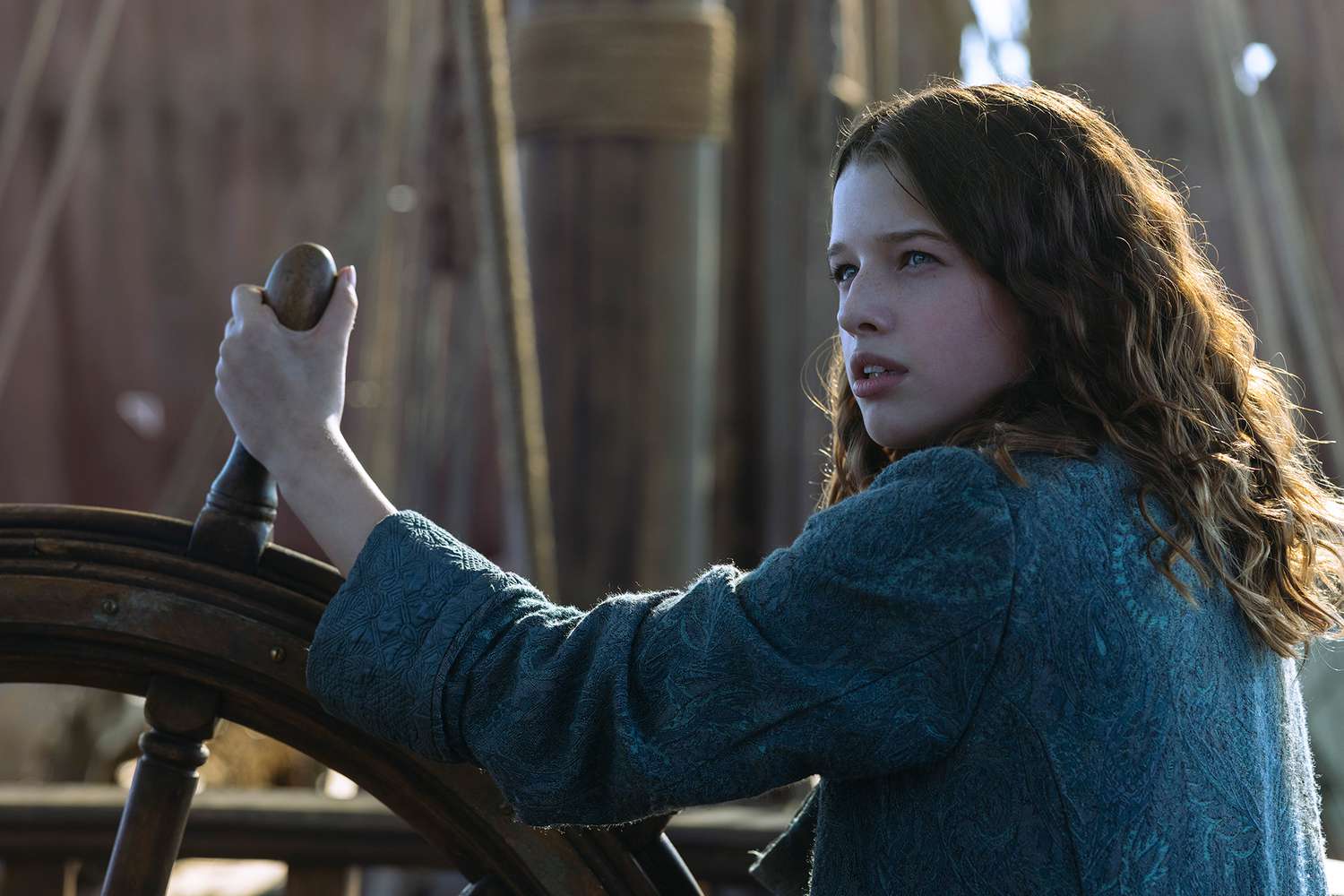
Director and co-writer David Lowery delivers a live-action reimagining of the J.M. Barrie novel and the 1953 animated classic, that is available on Disney+.
Peter Pan & Wendy introduces Wendy Moira Angela Darling (Ever Gabo Anderson), a young girl who does not want to renounce to the playful fun of childhood, whereas her family encourages her to grow up. Her mother (Molly Parker) and father (Alan Tudyk) remind her about the importance of the role as older sister to her brothers John (Joshua Pickering) and Michael (Jacobi Jupe). The flow of time cannot be stopped. The encounter with Peter Pan (Alexander Molony), Tinker Bell (Yara Shahidi), Tiger Lily (Alyssa Wapanatahk) and the Lost Children [no longer Lost Boys] will catapult Wendy in the wonders of Neverland. But Pan’s archenemy — of whom we shall discover the backstory — i.e. Captain Hook (Jude Law) and his fellow pirates will transform their adventures in a coming-of-age path that will make them realise how stepping into adulthood might not be that bad after all.
Contrarily to films such as The Lost Girls — that genuinely took the world of Barrie as a trigger to tell a different story, albeit rooted in the Pan archetype — Disney’s live action Peter Pan & Wendy is a rehashed repetition of the classic story through a very politically correct angle. Whereas the original depictions of Peter Pan made him a fascinating character, for his rebellious and at times supercilious attitude, in this film his nature is distorted into a repentant boy.

The perfunctory do-goodism is rampant in every moment of the film. Above all what emerges is the latest Hollywood trend: the cleansing of conscience through the arts by applying Cancel Culture or Social-Washing. When it comes to Disney’s “purified” remakes Beauty And The Beast is the clearest example of all. The origin of the fairytale can be found in the 18th century version written by Gabrielle-Suzanne Barbot de Villeneuve and the 19th century version penned by Jeanne-Marie Leprince de Beaumont. Both are set in a time when aristocrats were white people. As a form of social redemption Disney decided that the live-action starring Emma Watson and Dan Stevens would have noblemen and noble women of colour. Denying historical misdeeds does not right wrongs. Having African-American actors play members of the upper class does not turn the clock backwards and change the lives of those who suffered as slaves. Justice is not synonymous with ethics-washing.
Peter Pan & Wendy does something similar in our current “woke” age by channelling all its efforts in being diverse and inclusive in front of the camera. The result is a Tokenist representation of the classic fairytale: the casting is multi-ethnic, there is an actor who has Down syndrome; women are empowered and make the titular character and his antagonist (both males) come across like fools. Representation on screen is important, but it takes more to truly head towards a progressive society. Equal pay and access to positions of leadership are just a couple of examples.

Most importantly, when it comes to storytelling in Hollywood there seems to be a pervasive fear of giving space to original stories, or even first-time adaptations of plays and books that have not yet reached the silver screen. It is easier to regurgitate incessantly cherished storylines and characters that have long withstood the test of time and David Lowery is the latest filmmaker who falls into this pitfall.
Final Grade: C-

